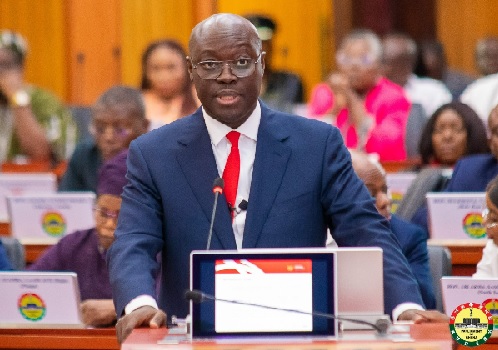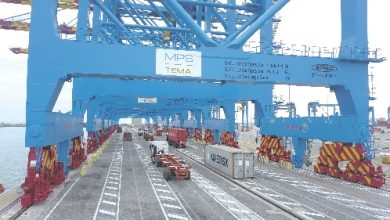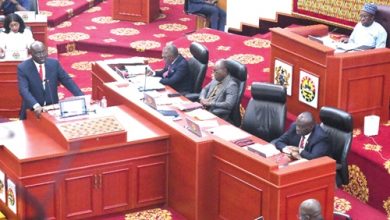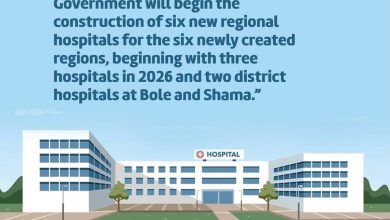
Ghana mobilized GH¢154.9 billion in total revenue and grants during the first three quarters of 2025, representing 11.1 per cent of GDP.
Though this figure was 4.7 per cent below the target, it marked a 22.8 per cent year-on-year growth, reflecting steady recovery and improved domestic resource mobilisation, Finance Minister Dr Cassiel Ato Forson has stated.
He said non-oil tax revenue reached GH¢122.1 billion, growing by 32.8 per cent despite underperformance in PAYE, VAT, corporate tax, and import duties, largely due to slower imports and lower inflation.
However, GETFund Levy and NHIL exceeded their targets by 16% and 16.6 per cent, respectively, supported by enhanced compliance under the Ghana Revenue Authority.
Dr Ato Forson made these remarks while presenting the 2026 Budget Statement and Economic Policy of Government for the year ending 31 December 2026, in Parliament on Thursday, November 13.
“Mr Speaker, total revenue and grants for the first three quarters of 2025 amounted to GH¢154.9 billion, equivalent to 11.1 percent of GDP. Although this outturn was 4.7 percent below the target of GH¢162.6 billion (11.6 percent of GDP), it represents a steady recovery in Ghana’s revenue mobilisation efforts,” he said.
“The performance was affected by shortfalls across all major revenue categories, with the exception of non-oil, non-tax revenues, which exceeded expectations. This pattern reflects the transitional impact of ongoing tax administration reforms and the gradual normalisation of business activity following the macroeconomic imbalances of 2024,” he said.
He mentioned that non-tax revenues outperformed expectations, reaching GH¢19.4 billion, about 38.5% above target, driven by strong remittances, dividends, and fees from state-owned enterprises.
Meanwhile, he said, oil and gas receipts fell sharply to GH¢5.9 billion, a 52.2 per cent shortfall caused by lower prices and production. Grants also underperformed, totaling GH¢963 million against a GH¢1.9 billion target.
The Finance Minister said the results show that Ghana’s revenue base is expanding and recent reforms in digitalisation, enforcement, and compliance are beginning to yield results.
“Mr. Speaker, in summary, while total revenue fell short of target, the underlying growth trends demonstrate that Ghana’s revenue base is broadening and the reforms in tax administration, digitalisation, and compliance are taking hold. The task ahead is to consolidate these gains, enhance efficiency in collections, and expand the tax net in a fair and growth-friendly manner.”
The focus, he said, is now on enhancing efficiency, broadening the tax net, and sustaining growth-friendly revenue mobilisation.



